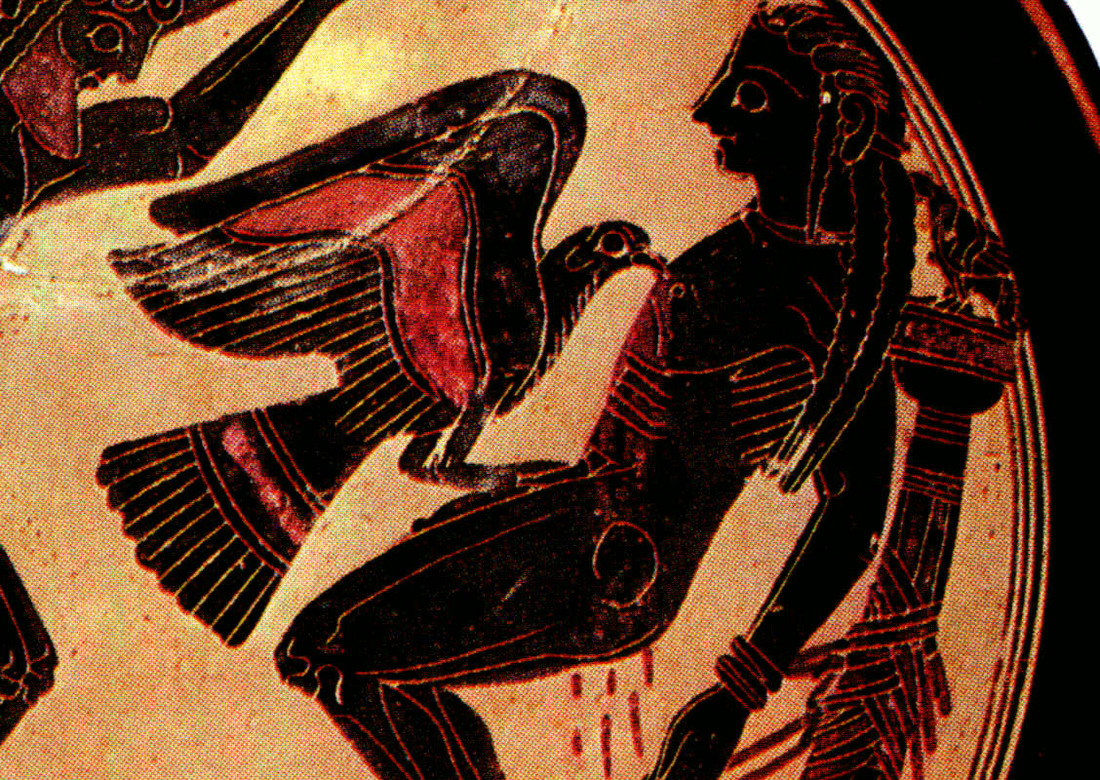Birds in the Ancient World

Birds play an outsized role in most cultures’ collective imaginations, which makes sense; they’re our near neighbors, yet retain a kind of strangeness that’s best embodied in their most singular characteristic, flight. If anything, birds played a larger role in the ancient and classical world, since they were seen as even closer to the human universe. As Reyes Bertolin Cebrian writes in her review of Jeremy Mynott’s Birds In The Ancient World:
Birds lived much closer to humans in the ancient world than they do today. There were more birds and more kinds of birds in evidence and they shared the space in the cities and in the fields.
So birds dotted both the mythologies and the daily lives of ancient peoples. Even “the world would have sounded rather different from ours since there was a greater abundance of wildlife and at the same time there were less mechanical noises to compete against,” making birdsong both more familiar and giving it greater importance. Birds were important for hunting and agriculture, but also for magic and ritual, with augury (observing the flight of birds) as the most important.
According to Cebrian, Mynott’s book is written more for bird lovers and the general public than a specialized classicist audience; all classical quotations are given in translation and very little special apparatus is needed.
(Via The Browser)





Stay Connected